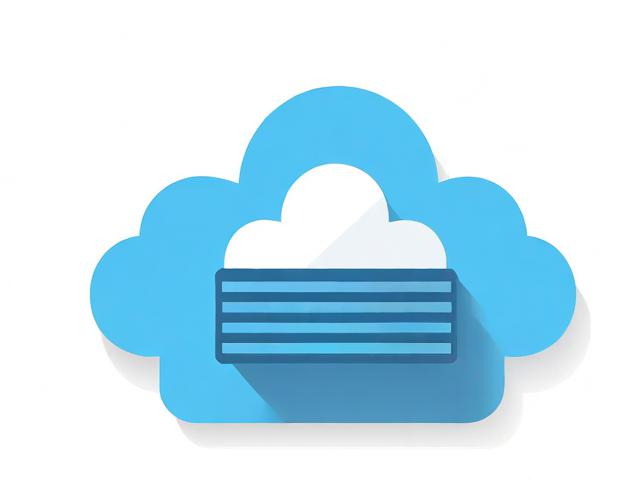ASP.NET操作Excel助手代码指南,如何编写相关代码?
- 行业动态
- 2025-03-08
- 4
在ASP.NET中操作Excel,可以使用Microsoft.Office.Interop.Excel库。以下是一个简单的示例代码:“
csharp,using Excel = Microsoft.Office.Interop.Excel;public void CreateExcelFile(),{, Excel.Application excelApp = new Excel.Application();, Excel.Workbook workbook = excelApp.Workbooks.Add();, Excel.Worksheet worksheet = (Excel.Worksheet)workbook.Worksheets[1];, worksheet.Cells[1, 1] = "Hello, Excel!";, workbook.SaveAs(@"C:pathtoyourfile.xlsx");, workbook.Close();, excelApp.Quit();,},“
在ASP.NET中操作Excel文件时,通常会使用到ADO.NET的OleDb连接来进行数据的读写,以下是一个简单的ExcelHelper类的实现,它封装了对Excel文件的基本操作:

ExcelHelper类代码
using System;
using System.Data;
using System.Data.OleDb;
using System.IO;
public partial class ExcelHelper : IDisposable
{
#region Fields
private string _excelObject = "Provider=Microsoft.{0}.OLEDB.{1};Data Source={2};Extended Properties="Excel {3};HDR={4};IMEX={5}"";
private string _filepath = string.Empty;
private string _hdr = "No";
private string _imex = "1";
private OleDbConnection _con = null;
#endregion
#region Constructor
public ExcelHelper(string filePath)
{
this._filepath = filePath;
}
#endregion
#region Properties
/// <summary>
/// 获取连接字符串
/// </summary>
public string ConnectionString
{
get
{
string result = string.Empty;
if (String.IsNullOrEmpty(this._filepath))
return result;
//检查文件格式
FileInfo fi = new FileInfo(this._filepath);
if (fi.Extension.Equals(".xls"))
{
result = string.Format(this._excelObject, "Jet", "4.0", this._filepath, "8.0", this._hdr, this._imex);
}
else if (fi.Extension.Equals(".xlsx"))
{
result = string.Format(this._excelObject, "Ace", "12.0", this._filepath, "12.0", this._hdr, this._imex);
}
return result;
}
}
/// <summary>
/// 获取连接
/// </summary>
public OleDbConnection Connection
{
get
{
if (_con == null)
{
this._con = new OleDbConnection();
this._con.ConnectionString = this.ConnectionString;
}
return this._con;
}
}
/// <summary>
/// HDR
/// </summary>
public string Hdr
{
get { return this._hdr; }
set { this._hdr = value; }
}
/// <summary>
/// IMEX
/// </summary>
public string Imex
{
get { return this._imex; }
set { this._imex = value; }
}
#endregion
#region Methods
/// <summary>
/// Gets a schema
/// </summary>
/// <returns>Schema</returns>
public DataTable GetSchema()
{
DataTable dtSchema = null;
if (this.Connection.State != ConnectionState.Open) this.Connection.Open();
dtSchema = this.Connection.GetOleDbSchemaTable(OleDbSchemaGuid.Tables, new object[] { null, null, null, "TABLE" });
return dtSchema;
}
private string GetTableName()
{
string tableName = string.Empty;
DataTable dt = GetSchema();
for (int i = 0; i < dt.Rows.Count; i++)
{
tableName += dt.Rows[i][2].ToString().Trim();
}
return tableName.Substring(0, tableName.Length 1);
}
public DataTable ReadTable()
{
return this.ReadTable(GetTableName(), ExcelHelperReadTableMode.ReadFromWorkSheet);
}
/// <summary>
/// Read all table rows
/// </summary>
/// <param name="tableName">Table Name</param>
/// <returns>Table</returns>
public DataTable ReadTable(string tableName)
{
return this.ReadTable(tableName, ExcelHelperReadTableMode.ReadFromWorkSheet);
}
/// <summary>
/// Read table
/// </summary>
/// <param name="tableName">Table Name</param>
/// <param name="mode">Read mode</param>
/// <returns>Table</returns>
public DataTable ReadTable(string tableName, ExcelHelperReadTableMode mode)
{
return this.ReadTable(tableName, mode, "");
}
/// <summary>
/// Read table with additional criteria
/// </summary>
/// <param name="tableName">Table Name</param>
/// <param name="mode">Read mode</param>
/// <param name="criteria">Additional criteria for reading</param>
/// <returns>Table</returns>
public DataTable ReadTable(string tableName, ExcelHelperReadTableMode mode, string criteria)
{
DataTable dt = new DataTable();
using (OleDbCommand command = new OleDbCommand())
{
command.Connection = this.Connection;
if (mode == ExcelHelperReadTableMode.ReadFromWorkSheet)
{
command.CommandText = "SELECT FROM [" + tableName + "]";
}
else if (mode == ExcelHelperReadTableMode.ReadFromQuery)
{
command.CommandText = "SELECT FROM [" + tableName + "] WHERE " + criteria;
}
using (OleDbDataAdapter adapter = new OleDbDataAdapter(command))
{
adapter.Fill(dt);
}
}
return dt;
}
#endregion
#region IDisposable Support
private bool disposedValue = false; // To detect redundant calls
protected virtual void Dispose(bool disposing)
{
if (!disposedValue)
{
if (disposing)
{
// TODO: dispose managed state (managed objects).
if (_con != null && _con.State == ConnectionState.Open)
{
_con.Close();
}
_con = null;
}
// TODO: free unmanaged resources (unmanaged objects) and override a finalizer below.
// TODO: set large fields to null.
disposedValue = true;
}
}
// TODO: override a finalizer only if Dispose(bool disposing) above has code to free unmanaged resources.
// ~ExcelHelper() {
// Dispose(false);
// }
// This code added to correctly implement the disposable pattern.
public void Dispose()
{
// Do not change this code. Put cleanup code in Dispose(bool disposing) above.
Dispose(true);
// TODO: uncomment the following line if the finalizer is overridden above.
// GC.SuppressFinalize(this);
}
#endregion
} 使用示例
以下是如何使用ExcelHelper类的一个简单示例:

string filePath = Server.MapPath("~/App_Data/example.xlsx");
ExcelHelper excelHelper = new ExcelHelper(filePath);
excelHelper.Hdr = "Yes"; //设置第一行包含列名
DataTable dt = excelHelper.ReadTable(); //读取Excel文件中的第一个工作表数据到DataTable中
GridView1.DataSource = dt; //绑定到GridView显示数据
GridView1.DataBind(); //刷新GridView显示数据 















